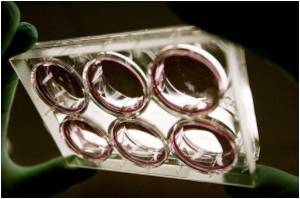Huntington's disease is a neurodegenerative disorder that results in involuntary spastic movement and loss control of voluntary motor function and the patients also exhibit a decline in cognitive ability.

Silvia Gines and colleagues at the University of Barcelona found increased expression of a protein, p75NTR, in the hippocampus of Huntington's disease patients and mouse models of this disorder. p75NTR is known to reduce dendritic spine density, which is associated with memory and learning defects. Reduction of p75NTR in mouse models of Huntington's disease prevented the cognitive decline and maintained spine density.
Moreover, over expression of p75NTR in the hippocampus of wild type mice recapitulated memory and learning defects associated with Huntington's disease. The results of this study recognize a potential role of the hippocampus in the development of Huntington's disease.
Source-Eurekalert











